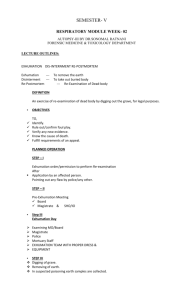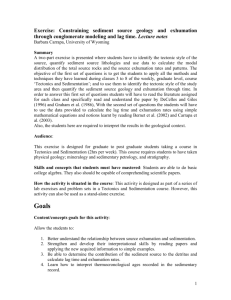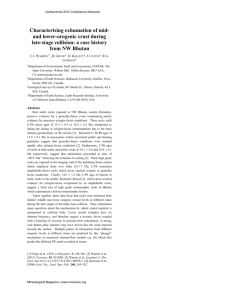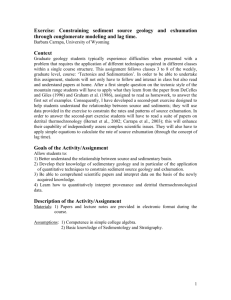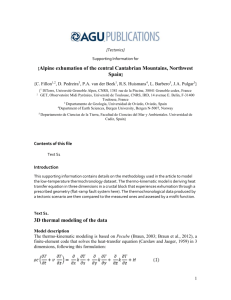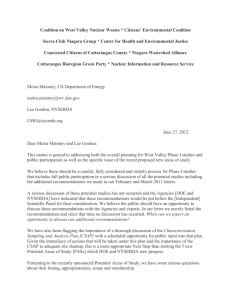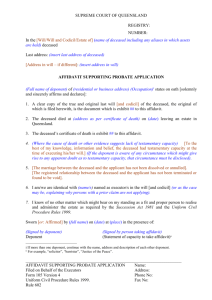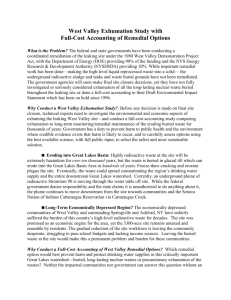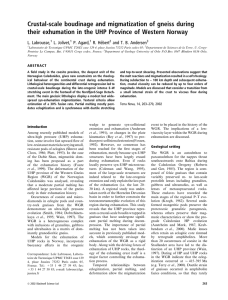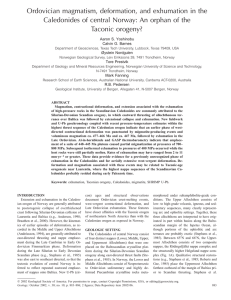SZHC_62_2007_1 - Swazi Legal Information Institute
advertisement
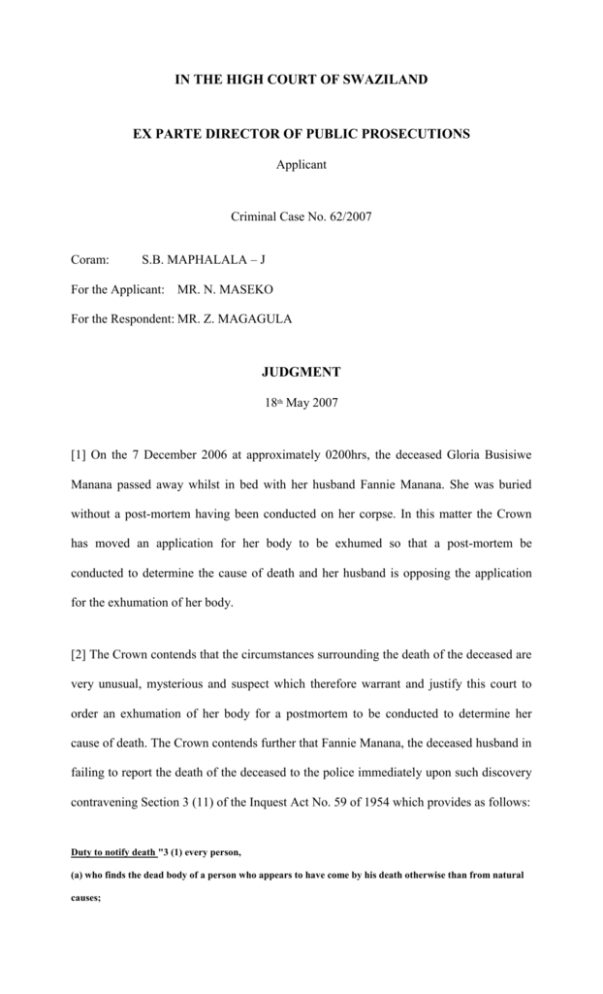
IN THE HIGH COURT OF SWAZILAND EX PARTE DIRECTOR OF PUBLIC PROSECUTIONS Applicant Criminal Case No. 62/2007 Coram: S.B. MAPHALALA – J For the Applicant: MR. N. MASEKO For the Respondent: MR. Z. MAGAGULA JUDGMENT 18th May 2007 [1] On the 7 December 2006 at approximately 0200hrs, the deceased Gloria Busisiwe Manana passed away whilst in bed with her husband Fannie Manana. She was buried without a post-mortem having been conducted on her corpse. In this matter the Crown has moved an application for her body to be exhumed so that a post-mortem be conducted to determine the cause of death and her husband is opposing the application for the exhumation of her body. [2] The Crown contends that the circumstances surrounding the death of the deceased are very unusual, mysterious and suspect which therefore warrant and justify this court to order an exhumation of her body for a postmortem to be conducted to determine her cause of death. The Crown contends further that Fannie Manana, the deceased husband in failing to report the death of the deceased to the police immediately upon such discovery contravening Section 3 (11) of the Inquest Act No. 59 of 1954 which provides as follows: Duty to notify death "3 (1) every person, (a) who finds the dead body of a person who appears to have come by his death otherwise than from natural causes; (b) to whom the knowledge of any such death may come; or (c) to whom any such death is reported; Shall as soon as possible notify the finding, knowledge or report, together with any other facts in connection therewith which are known to him to a Coroner, or to the person in charge of the nearest police station or police post, or to the nearest Chief. [3] On the above-cited section the Crown contends that the death of the deceased was reported at least after approximately five (5) hours from the time when she is said to have died by her husband and this was not in compliance with Section 3 of the said requirement to report as soon as possible. [4] The Crown has further taken the position that this court has the jurisdiction to order an exhumation on exactly the same grounds as a Coroner or a Magistrate would order an exhumation in terms of Section 8 of the Inquest Act No. 59 of 1954 which provides as follows: Power to order exhumation "8. If it appears to any coroner that the body of any person who has died in circumstances requiring the holding of an inquest thereon has been buried without examination by a medical practitioner, or it appears to him that further medical examination is necessary, he may order the exhumation of such body for examination or further examination". [5] The Crown finally contended that it would therefore be in the best interest of justice that an exhumation order be granted so that the cause of death of deceased be ascertained. [6] The Respondent on the other hand has taken the position that the application is irregular because the deponent to the Founding affidavit makes allegations which are not within his personal knowledge without stating his source. This irregularity cannot be cured by stating the source in the replying affidavit (see Master vs Slomowits 1961 (1) S.A. 675). Although the deponent states the source of his information in the replying affidavit, he does not state that he believed the information to be true and correct (see Southern Foods vs Mohidlen 1982 (3) S.A. 1068 and the cases cited therein). [7] The respondent has further taken the position that good faith is the sine qua non in ex parte applications. If any material facts are not disclosed, whether they be willfully suppressed or negligently omitted, the court may on that ground alone dismiss an ex parte application. In this regard the court was referred to the legal authority in Erasmus, Superior Court Practice at B -153. The deponent to the Founding affidavit has failed to inform the court that police officers were called and they examined the body of the deceased and that they all concluded that there was nothing suspicious about her death. [8] Finally the Respondent contends that in casu there is no cause for the exhumation as the Applicant has failed to state: (i) Why the post-mortem was not conducted before deceased was buried. (ii) Why the police did not stop the funeral when they had the power to do so. (iii) When did they get the "new" information why it took them almost three months to move the "urgent" application. [9] The Respondent furthermore contends that the exhumation is likely to cause trauma to both Respondent and his son more so because no convincing information has been placed before the court as to why the exhumation is necessary. [10] It appears to me on the above stated arguments by the parties that the Respondent is correct in his submissions on the question as to why did it take the Applicant almost three months to move this "urgent" application and further that the "new" information by the Applicant is not divulged tothe court to order exhumation. Indeed the exhumation is likely to cause trauma to both Respondent and his son more-so because no convincing information has been placed before the court as to why the exhumation is necessary. S.B. MAPHALALA JUDGE
